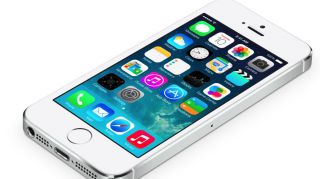4 Ways IoT is Driving the Transformation of Pharmaceutical Industry
IoT or the Internet of Things is an inter-network of physical, electronic devices with internet network connectivity, to provide connectivity and real-time exchange of data. These devices are embedded with sensors, actuators, etc. IoT has its application everywhere. Be it regular households where Alexa and Siri have taken over, or industries like manufacturing and software. The pharmaceutical industry is no exception and seen a staggering rise in the use of IoT.

There is no denying that IoT has great potential in this industry. From large scale manufacturing to enabling and automating remote monitoring of patients, IoT has stepped in and completely revolutionized the pharmaceutical industry. When IoT entered the pharmaceutical sector, it disrupted the old models of functionality especially the process of manufacturing and distribution of drugs. It is safe to say that with increased digitization by each day, it has opened the floodgates demanding complete overhauls in the industry.
- IoT shifting the scales in the Pharmaceutical Sector
IoT has changed the processes of drug manufacturing, delivery and administration by detecting the problems on the production line, supply chain to analyzing outcome and effectivity on patients. For providing timely and easy access to healthcare services, the pharma companies are using the latest technology and real-time data for speedy results in manufacturing, monitoring, distribution and control in-transit.
- IoT Sensors in Production Units
Increasingly deployed in the production, these sensors have enabled to assimilate large data from different departments around the world. It helps the company to control the entire line of production and weed out any irregularities if found. Companies have successfully reduced wastage of time and resources, increased overall production and reduced production cost.
- Role in Logistics
It is probably the most benefitted segment of the pharmaceutical sector. With smooth logistics and visibility of real-time movement of goods, companies now have smartened up warehousing while optimizing the overall routing of products. IoT sensors are most useful while transitioning of medicines that need particular temperature range and physical conditions. It reports anomalies of any nature in real time, saving time and providing a window for necessary intervention.
- Data Assimilation
Pharmaceutical companies, hospital, and other healthcare organizations have access to data from various sources spread around the world. The transmission of data is over real time, helping companies to function effectively and hospitals in providing better healthcare. It is particularly helpful for keeping trial records and results of various drugs. Hospitals too can monitor their patients constantly without the need of staff to be present with the patient for 24 hours.
A word of caution
IoT has made life easier for an individual who uses a pulse meter linked to his or her smartwatch, a hospital that can provide better care or pharmaceutical company in its overall production. The higher risks of cyber attacks in this sector are what brings with it a big reason to worry.
Pharmaceutical sector needs to take stronger measures to ensure Data safety to reap the full benefits of this revolution.
Devin Smith is a Microsoft Office expert and has been working in the technology industry since 2002. As a technical expert, Devin has written technical blogs, manuals, white papers, and reviews for many websites such as office.com/setup.
Source:-https://officeproduct2019.com/4-ways-iot-is-driving-the-transformation-of-pharmaceutical-industry/



Comments
Post a Comment